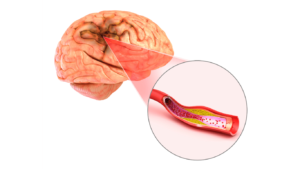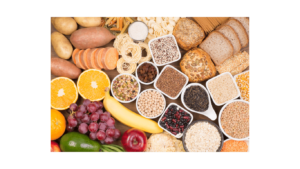Intro
Food cravings are a universal experience, yet so often, they're met with guilt or misunderstanding. Instead of viewing these cravings as mere whims or obstacles to our health goals, what if we approached them as messengers, offering insights into our body's needs? Unlocking the wisdom within our cravings can lead to a more harmonious relationship with food and ourselves. In this blog post, we will explore how to interpret and respond to our food cravings in a way that supports our wellbeing.
Recognizing the Signals: What Your Food Cravings Really Mean
When you experience a sudden urge for a specific food, it's not just a fleeting whim; it's your body communicating with you in its unique language. To decode this language, it's essential to approach your cravings with curiosity rather than judgment. For example, a persistent craving for sweets may not just be a quest for a sugar rush but could be your body's way of asking for quick energy during a slump. Similarly, a strong desire for salty snacks might signal a deeper need, such as mineral replenishment or hydration.
Understanding these signals demands a conscious effort to connect with your body's cues. This process involves a bit of detective work: observing when cravings arise, the circumstances surrounding them, and how your body feels before and after giving in. It's also helpful to consider the broader context of your diet and lifestyle. Are you getting a well-rounded intake of nutrients, or could there be gaps leading to specific cravings?
By adopting a more inquisitive stance towards cravings, you begin to uncover layers of need—both physical and emotional—that may have been overlooked. It's a step towards not just feeding a momentary desire but nurturing your body's deeper needs. Engaging in this exploration can illuminate patterns and reveal ways to support your wellbeing more holistically. Thus, recognizing and interpreting the signals behind your food cravings is a profound step towards aligning your eating habits with your body's genuine needs, paving the way for a more attuned and satisfying relationship with food.
The Emotional Hunger: Deciphering Between Needs and Wants
Navigating the terrain of emotional hunger requires a keen awareness of the nuanced differences between our body's need for sustenance and our mind's quest for emotional satisfaction. Often, emotional hunger masquerades as an urgent craving for specific foods, usually those rich in sugar and fat, which provide a temporary sense of comfort or escape. These cravings frequently arise not from the stomach, but from the heart and mind, triggered by emotions like stress, loneliness, boredom, or sadness.

Distinguishing between emotional and physical hunger is a crucial step towards mindful eating. Emotional hunger tends to appear suddenly and demands immediate satisfaction with specific comfort foods, whereas physical hunger develops gradually and is open to various food options. Additionally, emotional eating often leads to feelings of guilt or shame post-consumption, unlike the neutral or positive feelings associated with eating to satisfy genuine hunger.
To navigate the maze of emotional hunger, it's essential to develop strategies for emotional resilience and coping mechanisms that don't involve food. This might include engaging in activities that soothe or distract, such as reading, taking a walk, or practicing deep-breathing exercises. Creating a pause between the craving and action allows space to reflect on what emotional need might be driving the craving and consider healthier ways to address it.
By cultivating a deeper understanding of the emotional drivers behind cravings, individuals can begin to fulfill their emotional needs without relying on food as a primary source of comfort. This journey involves patience, practice, and self-compassion as we learn to feed not just our bodies, but also our emotional well-being in more constructive and nourishing ways.
Nutritional Deficiencies and Food Cravings: Connecting the Dots
Understanding the connection between nutritional deficiencies and food cravings is a fascinating aspect of tuning into our body's signals. A craving isn't merely a random desire; it can be an important message from your body indicating what it might be lacking. For instance, if you find yourself consistently drawn to chocolate, it could be a sign that your body is seeking magnesium, a mineral found in high quantities in cocoa. Similarly, a strong yearning for red meat might suggest an iron deficiency, especially prevalent among women or vegetarians who might not get enough from their diet.
But how do you act on these signals in a way that benefits your health? First, it's crucial to verify whether these cravings are indeed tied to deficiencies by consulting with a healthcare provider and possibly getting blood work done. Once a deficiency is confirmed, the focus should shift towards incorporating foods rich in the needed nutrients into your diet. For example, instead of satisfying a chocolate craving with sugary treats, consider choosing dark chocolate with a high cocoa content or other magnesium-rich foods like nuts, seeds, and leafy greens.
This approach not only addresses the root cause of the craving but also enriches your diet with a diversity of nutrients, contributing to overall health and well-being. It's about making informed choices that honor your body's needs without compromising on taste or pleasure. As you begin to fill these nutritional gaps, you may notice a natural decrease in the intensity and frequency of your cravings, allowing you to engage with food in a more balanced and satisfying way.
Mindful Eating: A Pathway to Understanding Cravings
Mindful eating is a transformative practice that brings a heightened level of awareness to the act of consuming food. It encourages us to savor each bite, pay attention to the flavors, textures, and aromas of our meals, and tune in to how our bodies respond to different foods. This attentiveness allows us to discern the origins of our cravings, whether they stem from physical hunger, emotional needs, or perhaps a combination of both.
By engaging in mindful eating, we give ourselves the opportunity to pause and reflect before acting on our cravings, opening a window into understanding the why behind our desires. This practice promotes a deeper connection with our eating experiences, enabling us to recognize true hunger cues and differentiate them from emotional or habit-driven eating patterns. Mindful eating also supports us in making choices that are in alignment with our body's needs, leading to more satisfying and nourishing meals.
It's a step away from automatic eating behaviors and towards a more conscious, intentional approach to food. Through mindful eating, we learn to appreciate food as a source of nourishment and pleasure, fostering a healthy and balanced relationship with what we eat. It's a journey that encourages not just awareness during meals, but a broader mindfulness about our overall approach to food and eating, reinforcing the idea that how we eat can be as important as what we eat.
Replacing Cravings with Healthy Alternatives: Satisfying Needs Wisely

When the understanding of our cravings deepens, it becomes possible to navigate them with smarter, healthier alternatives that align with our body's true needs. Suppose a craving for something salty grips you; rather than reaching for a bag of chips, consider satisfying this desire with a handful of lightly salted nuts or seeds. These not only quench the craving but also supply your body with beneficial fats and proteins. Similarly, for those moments when nothing but something sweet will do, bypass the candy aisle and opt for nature's bounty, like a ripe piece of fruit or a smoothie made with frozen berries. These choices fulfill the immediate desire for sweetness while contributing valuable nutrients and fiber to your diet.
It's also worth exploring creative swaps for more complex cravings. Craving a creamy, comforting bowl of ice cream? A blended frozen banana with a touch of vanilla extract can create a surprisingly indulgent alternative that's both satisfying and healthy. If pizza is what your heart desires, try a homemade version with a cauliflower crust topped with a plethora of veggies and a sprinkle of cheese.
Incorporating these alternatives does more than just address the craving at hand; it's a step towards cultivating a more thoughtful and nourishing approach to eating. By selecting options that are not only delicious but also nutrient-dense, we honor our body's needs without forgoing the pleasure of eating. This balanced approach to managing cravings empowers us to make choices that are both enjoyable and supportive of our overall health, weaving together the threads of satisfaction, nourishment, and well-being.
Creating a Balanced Relationship with Food: The Ultimate Goal
Achieving a balanced relationship with food transcends the cycle of craving, indulging, and regretting. It involves a nuanced approach where moderation and mindfulness pave the way for healthier choices and a more satisfying eating experience. This balance doesn't equate to strict self-denial or the constant indulgence in comfort foods. Instead, it's about finding that sweet spot where nutritional needs, personal satisfaction, and emotional well-being intersect.
Crafting this balanced relationship means recognizing the difference between feeding your body and feeding your emotions. It involves learning to enjoy the foods you love without overindulgence and understanding that occasional treats are part of a holistic approach to nutrition. It's also about exploring new flavors and ingredients that not only satisfy your taste buds but also contribute to your body's well-being.
In this balanced paradigm, food becomes an ally in promoting health and happiness rather than a source of stress or guilt. This perspective encourages you to make informed choices, selecting foods that nourish both your body and your soul. It's an approach where meals are eaten with intention and gratitude, acknowledging the nourishment and pleasure they provide.
Building a balanced relationship with food is an ongoing journey, one that is deeply personal and evolves over time. It's a path marked by self-discovery, where each meal and craving can teach you more about what your body and heart truly need. By fostering this balance, you can transform your relationship with food into one of joy, respect, and fulfillment, ultimately leading to a richer, more vibrant life.
Listening to Your Body: The Key to Long-Term Health
Tuning into the language of your body is an essential practice for nurturing long-term health. This means acknowledging and respecting the signals it sends, which often manifest as cravings or other physical cues. When you start paying close attention, you realize that these cravings are not arbitrary but are your body's way of communicating its needs and deficiencies. For instance, a sudden desire for a particular food might be pointing towards a nutrient that is currently lacking in your diet. By responding to these signals with mindfulness and curiosity rather than dismissal, you set the foundation for a healthier and more attuned lifestyle.
Cultivating this deep connection with your body's signals requires patience and practice. It involves slowing down and really listening to what your body is trying to tell you, which can be challenging in the fast-paced world we live in. However, making this a priority allows you to better understand your body's unique needs, leading to more informed decisions about what you eat and how you care for yourself.
This practice of attentive listening extends beyond just navigating cravings—it also encompasses recognizing signs of hunger and fullness, identifying food sensitivities, and being aware of how different foods affect your mood and energy levels. Over time, this heightened awareness can transform your approach to eating and self-care, guiding you towards choices that truly serve your health and wellbeing.
Emphasizing the importance of listening to your body highlights a proactive approach to health, one that empowers you to become the expert on your own body. It's about building a relationship with yourself that is based on trust and respect, recognizing that your body's signals are valuable insights that can guide your choices towards optimal health.
Embracing Cravings with Compassion and Understanding

In navigating the journey of understanding our cravings, it's paramount to foster an attitude of compassion towards ourselves. Harboring feelings of guilt or self-criticism when cravings arise only fuels a cycle of negativity, distancing us further from achieving a harmonious relationship with food. Instead, by welcoming these cravings with an open heart and a curious mind, we transform them into valuable moments of self-discovery.
Treating yourself with kindness when cravings appear does not mean giving in to every whim indiscriminately. Rather, it's about engaging in a gentle dialogue with your body and emotions, seeking to understand the underlying needs without judgment. This compassionate approach encourages a deeper exploration of what drives our cravings—be it physical deficiencies, emotional voids, or simply the desire for comfort and pleasure.
Acknowledging cravings as part of the human experience also plays a critical role in this compassionate understanding. It's a reminder that cravings are not failures or weaknesses, but signals worth deciphering. With this mindset, we learn to navigate our cravings with grace, making informed decisions that honor our bodies and our emotional well-being.
By cultivating compassion and understanding toward ourselves in moments of craving, we pave the way for more mindful and fulfilling eating habits. This nurturing approach allows us to meet our needs in healthier ways, ultimately leading to a more balanced and joyous relationship with food. Embracing cravings with kindness is not just about managing desires—it's about nurturing a deeper connection with ourselves, where every craving becomes an opportunity for growth and self-care.






